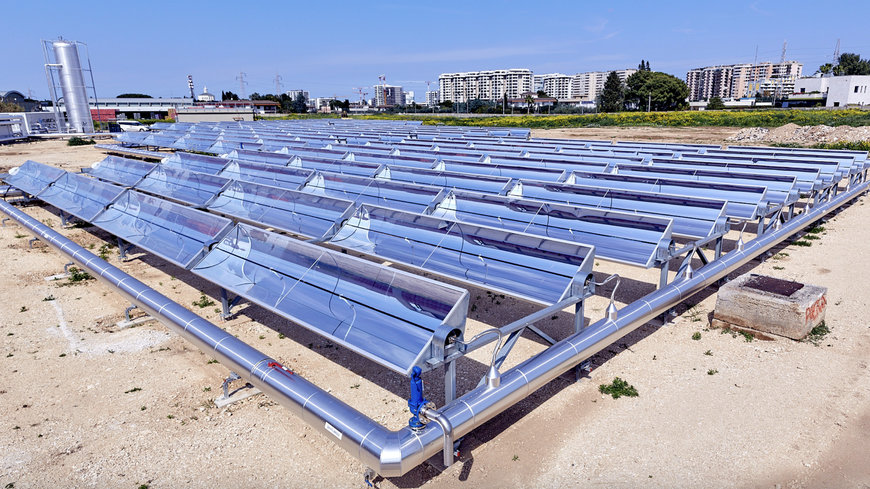www.industryemea.com
16
'24
Written on Modified on
TETRA PAK AND ABSOLICON LAUNCH MODULE FOR RENEWABLE THERMAL SUPPLY TO POWER UHT EQUIPMENT LINE
This collaboration can have an impactful role to play in Tetra Pak’s ongoing drive towards net zero in Scope 3 emissions by 2050.

Absolicon Solar Thermal Modules
Tetra Pak has announced a collaboration with Absolicon, a Swedish solar thermal company, to offer a standardised solution for industrial equipment powered by renewable thermal energy (heat).
Absolicon has designed a scalable solar thermal module that can be integrated with current and new UHT lines and enable a range of decarbonisation options, including a reduction of greenhouse gas emissions, based on customer requirements and location.
Tetra Pak’s UHT processing line for high-temperature sterilisation of dairy products is the first solution to be offered together with a scalable solar thermal supply, with the potential to reduce fossil fuel usage by up to 40%. The first module is forecasted to be installed during 2024, before scaling to a worldwide market.
In a typical food production plant, two-thirds of the energy consumption is thermal energy, with electricity forming the other third. As most of the thermal demand is in the form of low to medium temperature, the food industry is a perfect fit for solar thermal energy. The technology can have a perceptible impact on the environmental performance of equipment powered by solar thermal power modules (STPM) compared to equipment heated by fossil fuel-powered boilers. Put into context, heat generation today constitutes 40% of the world’s total CO2 emissions, according to the International Energy Agency. Due to the performance and scalability of the Absolicon STPM for Tetra Pak, the design will decarbonise a major step in the UHT process and reduce fossil fuel usage.
Tetra Pak has announced a collaboration with Absolicon, a Swedish solar thermal company, to offer a standardised solution for industrial equipment powered by renewable thermal energy (heat).
Absolicon has designed a scalable solar thermal module that can be integrated with current and new UHT lines and enable a range of decarbonisation options, including a reduction of greenhouse gas emissions, based on customer requirements and location.
Tetra Pak’s UHT processing line for high-temperature sterilisation of dairy products is the first solution to be offered together with a scalable solar thermal supply, with the potential to reduce fossil fuel usage by up to 40%. The first module is forecasted to be installed during 2024, before scaling to a worldwide market.
In a typical food production plant, two-thirds of the energy consumption is thermal energy, with electricity forming the other third. As most of the thermal demand is in the form of low to medium temperature, the food industry is a perfect fit for solar thermal energy. The technology can have a perceptible impact on the environmental performance of equipment powered by solar thermal power modules (STPM) compared to equipment heated by fossil fuel-powered boilers. Put into context, heat generation today constitutes 40% of the world’s total CO2 emissions, according to the International Energy Agency. Due to the performance and scalability of the Absolicon STPM for Tetra Pak, the design will decarbonise a major step in the UHT process and reduce fossil fuel usage.
www.tetrapak.com

